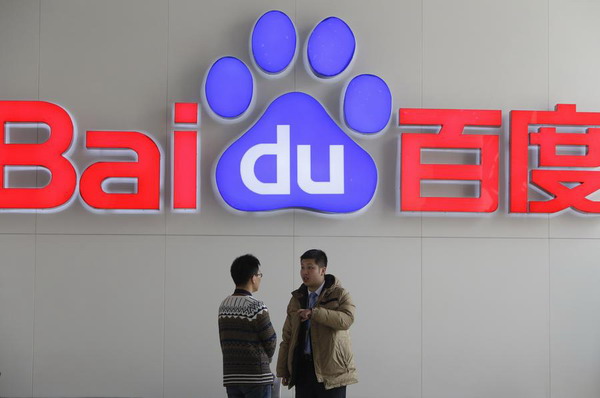

An alliance of private hospitals in Putian city, Fujian province is emphatically protesting an advertisement scheme on baidu.com, China's leading search engine, according to multiple reports.
In an unofficial notice leaked on March 25, the Putian Health Industry?Chamber of Commerce?(PHICC) asks all its members to stop paying Baidu Inc, citing the "irrational paid ranking" as the main reason.
Southeast Express quoted an insider saying that a private hospital pays Baidu an average of 2 million yuan per year, which equals about half of its revenue.
"That is nothing. I know some big private hospitals that pay 200,000 to 30,000 yuan ($32,224 to $48,336) to Baidu on a daily basis," he said.
Putian's private hospitals spent as much as 12 billion yuan on Baidu's bidding ranking in 2013, accounting for 46 percent of the internet giant's advertisement income for the year, according to Liang Jianyong, then Party chief of Putian.
PHICC was established on June 28, 2014. It now includes more than 8,600 members – eighty percent of China's private hospitals - with estimated gross revenue of some 260 billion yuan, figures show.
The reputation of the Putian hospital brand, however, did not soar in public reviews. To the contrary, it is notorious for poor ethics as well as rampant medical fee frauds.
The final straw for their cooperation – if there ever has – was when Baidu launched a scrutiny on qualification of hospitals on its bidding ranking earlier this year, and subsequently pulled some of them off the listing for breaching industrial norms.
In a March 26 statement on Weibo, Baidu asserted its "unswerving stance" on a stricter quality inspection for subpar hospitals in its rankings, adding that it declined more than 13,000 biddings by hospital clients last year, 60 percent of which were with the Putian coalition.
Baidu isn't worried about losing a major client by breaking up with Putian hospitals, the company told Beijing News on March 26, adding that it will partner up with more qualified private and public hospitals in an attempt to create a sound medical health circle in China.
PHICC will convene a membership meeting on April 4 to discuss whether to formalize the protest announcement and other related matters, according to the National Business Daily.
Most PHICC members declined to comment. Sources said there is an internal conflict going on, as highly ranked private hospitals are inclined to continue cooperating with Baidu.
Online opinions varied over the issue. An Internet user argues that Baidu showed hypocrisy by making a fortune from hospitals and kicking them away in order to raise its public image, while another one hailed the move, describing medical malpractice at a private hospital.
"I hate this kind of foul play. And obviously Baidu was a big part of that," wrote an internet blogger.
Commenting on the issue, Zhang Yibin, head of Putian's health and family planning commission, said it will boost the development of private hospitals in Putian in terms of getting in compliance with advertisement rules and improving medical technology and staff. He also predicted that profit-sharing between Baidu and?PHICC members would be adjusted following the April 4 meeting.
PHIA released a statement on March 29 pledging to clean up the medical environment and contribute to a healthy development of the industry.
 |
|
People talk in front of Baidu Inc, which operates China's most popular Internet search engine, in Beijing.[File Photo] |